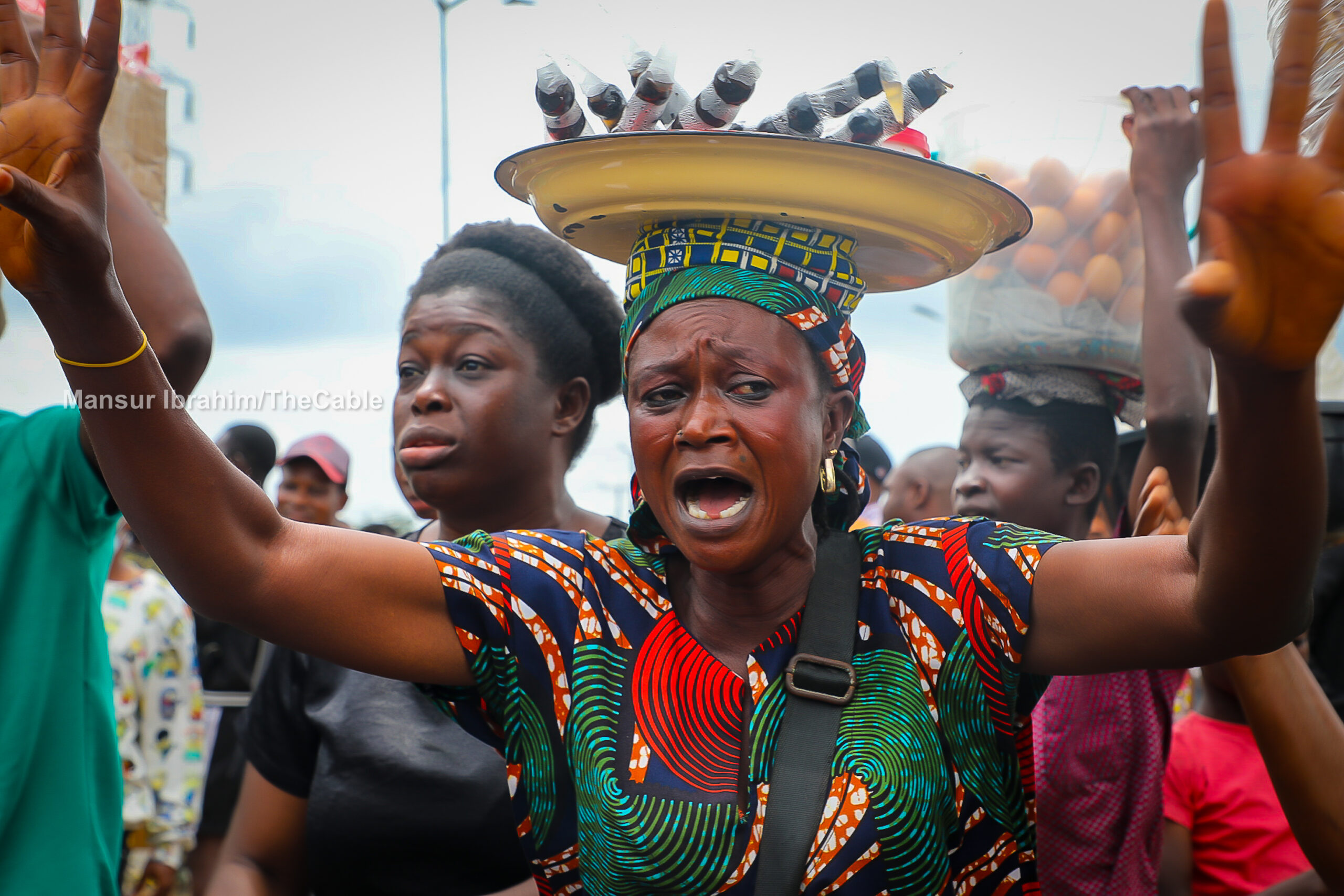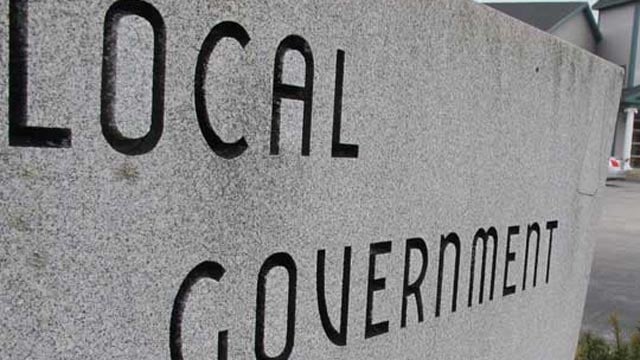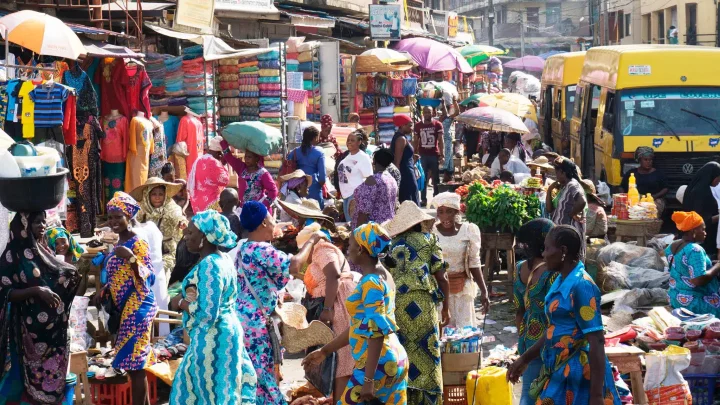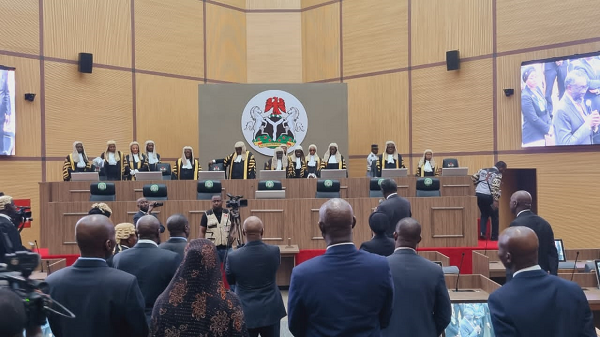Street hawkers at the #EndBadGovernance protest in Lagos
BY JAMES EZE
If you are Nigerian and Nigeria does not make you cry, then you are either one of “them” or hewn out of a rock. And this is not an appeal to emotion. Nigeria is embarrassing at the moment. Every day, something depressing happens. It is not strange, except that Nigeria’s case is habitual.
Events in Nigeria today stir up memories of ‘Cry, the Beloved Country,’ a 1948 novel by South Africa’s Alan Paton, which sounded a warning on the gathering clouds that became Apartheid. Published on February 1, 1948, the novel is Paton’s tearful cry against the structural flaws in the South African society that eventually led to Apartheid.
Nigeria’s current agonizing slide into atrophy is on the same scale that made Paton pen his classic, which went on to sell fifteen million copies and spawn adaptation into two movies. Nigeria marked her 64th independence anniversary last week. Anniversaries are for merrymaking and stocktaking. But most Nigerians had nothing to be cheerful for because looking back into Nigeria’s past is like a gaze into a dark hole with tiny specks of light.
Sadly, those sparks predate Nigeria. They are the glow of the mythologized Nri Kingdom and the Benin, Oyo, and Kanem Borno empires, which existed in the area collectively referred to as Nigeria today. It is as thought that age never happened. Otherwise, it would have been logical to expect our political leaders to walk in the shadow of the historical avatars that built those kingdoms. So far, we have failed woefully to prove that we came from that proud lineage. That we own that history. And while across the world, people with less illustrious ancestry have built civilizations, we have failed to manage our domestic affairs, let alone build anything of value. It is hard to accept that real greatness ended with our ancestors…that this time, the apple fell far away from the tree!
Advertisement
It is also tempting to argue that Nigeria learnt nothing from the Biafran War and has instead made an art of dancing on razor-edge. But while she revels in this bizarre masochism, it is important to note that Nigeria is not the only African country that fought a civil war. DR Congo, Rwanda, Angola, Uganda, Sudan, Liberia, Sierra Leone, and Cote d’Ivoire also fought wars. However, while Rwanda appears to have made the most use of the bitter lessons of war, Nigeria and a handful of others have continued to slide down the barrel.
All things considered, Nigeria is becoming a confounding paradox in the 21st century. And that is the paradox of a tree with roots in the sky. The Nigerian diaspora drives this imagery home. In the diaspora, Nigerians have shown remarkable talent and admirable competitive spirit. They excel in almost everything they set their minds on, bringing grit and vigour to bear on their pursuits. There are celebrated Nigerian mayors, school administrators, scholars, writers, painters, singers, sports personalities, surgeons, soldiers and members of parliament, in many advanced countries, but at home, their country is in the intensive care unit, gasping for breath.
And here’s another scenario. Through the years, Nigeria has played a leading role in peacekeeping across Africa. In fact, barely weeks after gaining independence in 1960, Nigeria dispatched a contingent of soldiers to the Congo to stamp out a civil war. Nigeria also led the fight against Apartheid from the front. It is in recorded history that at the height of the anti-Apartheid struggle, Nigeria issued over 300 passports to South Africans fleeing their country to seek a better life elsewhere. But in a cruel stroke of irony, the 2016 Community Survey revealed that over 30,000 Nigerian economic exiles had settled in South Africa. These people were rendered immigrants by their country’s continuous slide into ignominy and unwittingly positioned as easy targets of the country’s encyclical xenophobic attacks. The number should be higher today, xenophobia or not!
Advertisement
In much the same way, Nigeria led the ECOMOG peacekeeping operations in Liberia with the largest contingent of the over 8000 troops drawn from Ghana, Guinea, Mali, Burkina Faso, Senegal, Uganda and Tanzania. She also led the efforts to resolve conflicts in Angola with 5000 troops and Sierra Leone with 6000 troops. Sadly, the imagery of the tree with roots in the sky persists here. Nigeria’s peacekeeping record across Africa is stellar. But at home, terrorists have carved up the country into fiefdoms. While some citizens trapped in the areas controlled by terrorists pay tributes in exchange for a chance to live another day, those outside the terror zone live at the mercy of kidnappers. Kidnapping is now a thriving industry in Nigeria, growing in reach and influence to cover every region. It has corroded the shiny surfaces of our lives; limiting the ways we exercise the freedom to move and associate with one another. The reign of terror and fear is almost complete, from North to South!
Indeed, it is perplexing how Nigeria has failed to learn from her variousunsavouryy experiences through the years. Military incursion in politics forms some of the darkest chapters of Nigerian history. But we have learnt nothing from the horrendous years of military dictatorship that drove both the intellectual class and many human rights activists into exile. In fact, in a cruel twist of fate, the very victims of military dictatorship have transited into democratic despots, strangling their compatriots with an economic choke-hold. It is very troubling to see people who were once hunted down for their belief in democracy transform into brutal enemies of democracy after assuming power; bastardizing electoral processes and manipulating outcomes to suit their desires, and finally, turning the courts into jurisprudential scarecrows to fend off political rivals.
Regrettably, Nigeria continues its ceaseless cantering down a tortuous path to nowhere. Her mass of devalued citizens wince at every adjustment of their misery index, gripped by the overwhelming fear of the unknown. Their income and savings melt away with every increase in the pump price of petrol. They go to bed with worries, unsure of what hardship the next day would bring. They wear fear like a bloodstained epaulette; a reminder of how long they have survived waves of dehumanization. Drained of the strength to talk about their ordeal and the willpower to rise in protest, they lay supine; surprised at the fact of their own survival; that they still wake up to behold the sun rise.
But fear has the power to redefine us, stripping us of the gait and bounce that only confidence inspires. Unchecked, fear can evolve into a psychological conditioning that paralyses its victim to spineless inertia. No wonder why Alan Paton told his compatriots “Cry, the beloved country, for the unborn child that is the inheritor of our fear. Let him not love the earth too deeply. Let him not laugh too gladly when the water runs through his fingers.”
Advertisement
For now, we are hostages to fear and uncertainty in Nigeria.
Eze, poet, journalist, and PR Consultant, writes from Enugu.
Views expressed by contributors are strictly personal and not of TheCable.
Add a comment







